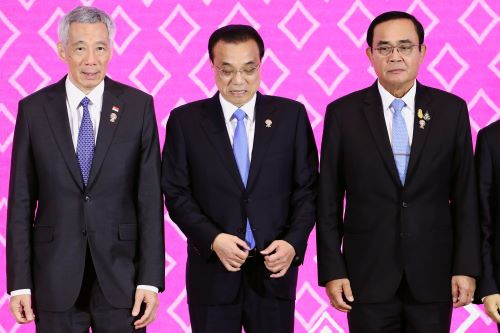A recent report revealed that China is growing a business presence in Singapore. A residential estate sold en bloc to a Chinese developer Kingsford Huray Development Pte. Ltd. is currently being developed. Furthermore, a subsidiary of China Metallurgical Group Corp. (MCC), one of the largest contractors within its industry, was also hired to develop a site in Singapore as well.
According to a report published by the Strait Times, China's growing presence across properties and development areas in Singapore are hard to miss. One of the examples given was the Chinatown area in Singapore where local Chinese restaurants and stores have been dominating the industry in recent years.
The report also mentioned that public transport areas also sold Chinese products dominantly. It was revealed that Old Chang Kee curry puffs, which is a common snack in China, has been selling more than local products in Singapore.
Chinese investments in Singapore were also highlighted in the report. According to the official figures released by the Department of Statistics in November, China had invested a total of $41.8 billion into Singapore by the end of 2018 alone. The report also highlighted that this signaled China's strong presence in the country as it has influenced economic involvement and cultural commonality in the country's workplaces.
The report also indicated that the cumulative investment sourced from other countries aside from China also grew 4.4 times within the same period.
However, it was also revealed that China's investments in Singapore are still lower than investments sourced from the United States. The latter was said to have invested $292.5 billion by the end of 2018. Netherlands and Japan also had higher investments in Singapore amounting to $127.8 billion and $117.9 billion, respectively.
Apart from Singapore, the report also indicated that Chinese investments have also been growing in Asian countries. A report put published by American Enterprise Institute in China Global Investment Tracker showed that China had invested a total of $47.7 billion in Indonesia, $29 billion in Indi, $44.4 billion in Malaysia, and $9.4 billion in Thailand.
According to a keen China investment tracker Ivan Ng Wei Chean, investments into China had been shifting rapidly from low-cost to export-focused. He explained that the country is the world's production center, but the costs had been rising in recent years.
Conversely, the report indicated that Chinese technology money had also been shifting to other countries in Asia because of the trade deal challenges that it faces against the US and the European Union. Since the ban of Huawei in the US, the same trend emerged wherein investments were growing outside of China instead of locally.






